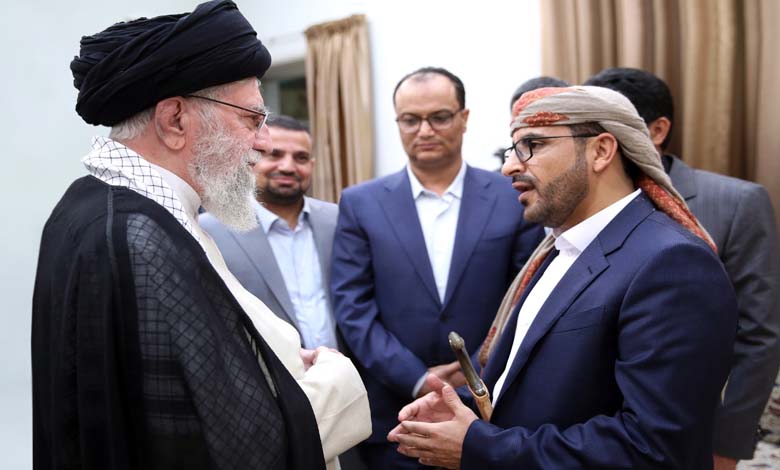The Houthis Under Financial and Military Siege: Will Iran Come to Their Rescue?

The Houthi movement in Yemen is facing unprecedented military and economic pressure as U.S. and Israeli strikes escalate, targeting vital economic and infrastructure facilities under their control. This has forced the group to seek urgent support from Iran to compensate for the collapse of its operating budget.
-
Houthis’ Opening of a Vital Road Between Sanaa and Aden Reflects a Tactical Shift
-
Houthis Continue Their Crimes and Turn Yemen Into a Battleground for Iranian Conflicts
According to well-informed Yemeni sources, the group’s income has dropped by nearly half, particularly in terms of fighter salaries and front-line expenses, due to U.S. sanctions and Israeli airstrikes on oil and industrial facilities, Sana’a Airport, and key power stations.
The attacks weren’t solely military; they dealt a severe blow to the Houthis’ economic system. This is an “economically suffocating” phase, with major revenue sources such as the black market, port operations, and trader-imposed taxes all in decline.
-
Waddah Bin Attiyah: Houthis Exploit Eid al-Adha to Intensify Violations Against Yemenis
-
Has Iran Abandoned the Houthis? Experts Respond
He added that several banks and financial institutions have relocated their headquarters to Aden, weakening the Houthis’ ability to control the market. Meanwhile, a double taxation policy on goods has led to economic contraction and widespread discontent among merchants in Houthi-controlled areas.
Despite the crisis, the group’s missile and drone capabilities remain functional, continuing to target ships in the Red Sea and Israel. Mansour attributes this to direct Iranian support, explaining that the funding for this sector is entirely separate and overseen by the Quds Force, allowing the Houthis to maintain their offensive despite internal financial paralysis.
-
Houthis Continue Their Crimes and Turn Yemen Into a Battleground for Iranian Conflicts
-
Houthis Impose Naval Blockade on Haifa Port
The Houthis’ recent request for increased Iranian support highlights their vulnerable state and presents Tehran with a tough strategic choice: continue backing its steadfast ally in Sana’a despite mounting domestic and international pressure, or reassess its regional priorities.
Mansour believes Iran won’t abandon the Houthis, but may divert part of its Hezbollah funding to Yemen, as the Houthis have become a more effective tool in the regional deterrence equation.
-
Houthi Leader Admits Iranian Support and Threatens Israel
-
The ceasefire with the Houthis was not an American concession, but the result of Houthi setbacks
With rising poverty and a black-market economy dominated by figures like Mohammed Abdel Salam, Iran appears to be investing in a military entity rather than a political one.
The scene in Sana’a warns of a potential social explosion, amid the total absence of development projects, suspended civil servant wages, and the widening gap between the military leadership and the civilian population.
-
New Contacts Between the Muslim Brotherhood and the Houthis… Details
-
Houthis Hide Their Dead… Funerals Banned and Condolences Forbidden
-
The Demons’ Deal: Houthis Release Al-Qaeda Terrorists to Reinforce Their Frontlines
-
American Airstrikes on Houthis Expose the Double Standard of Yemen’s Muslim Brotherhood
-
Amid intense Arab efforts, will the world succeed in stopping the terrorism of the Houthi and Iran in Yemen?












